Thursday, October 1st
| 10:30 a.m.-12:30 p.m. | "Music for Social Change," Peter Bergel [Mark Kasoff], Ford 122
Lots of social change songs are still being written and hip-hop has become the voice of many social change activists, but hardly any of these songs involve the audience as participants. Peter Bergel is a lifelong social change activist and song leader [Mr. Bergel has graciously allowed us to link the lyrics of the songs in his program to this entry.] |
| 1:30 – 3:30 p.m. | A presentation at the Hallie Ford Museum [Sharon Wright], **Hallie Ford Museum**
Stilleven (the Dutch word for still life) features work by 27 contemporary artists from Oregon, Washington, Idaho, Montana, and British Columbia who focus on still life in their artwork. Organized by Director John Olbrantz and Collection Curator Jonathan Bucci, the exhibition includes paintings, sculpture, prints, drawings, photographs, glass, and mixed media by artists Katherine Ace, Holly Andres, David Giese, Norman Lundin, Flora Mace and Joey Kirkpatrick, Henk Pander, and Sherrie Wolf, among many others. ICL tour to be led by Jonathan Bucci. Northwest Perspectives: Selections from the Permanent Collection On permanent view - Carl Hall Gallery Visitors can explore new ideas of landscape, narrative, identity, form and process through a variety of paintings, sculptures and mixed media that highlight both visual and conceptual relationships between historic and contemporary art. The gallery provides the museum with an opportunity to share many previously unviewed works that capture the rich and varied expressions that have taken place during the past century, which has been marked by rapid changes in the art world, the Northwest and its landscape. This gallery is named for Carl Hall (1922-1996), who taught at Willamette University for nearly 40 years and painted a luminous record of his response to the region. ICL tour led by Elizabeth Garrison, Cameron Paulin Curator of Education. |
Tuesday, October 6th
| 10:30 - 11:30 a.m. | "Codes and Code Breaking in WW2," Ken Ash [George Adkins], Ford 122 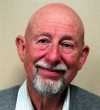
Code breaking played an outsize role on both the European and Pacific theaters. This talk will explore how the codes worked, how they were broken and the effect on the conduct and outcome of the war. Ken Ash is a hiker, ICL member and retired chemist who probably missed his true calling as a history professor who could have enthusiastically bored generations of students. |
| 11:30 a.m.-12:30 p.m. | "Statesman Journal Community Presentation," Terry Horne [Gary Slangan], Ford 122
Terry Horne was appointed president and publisher of the Statesman Journal and StatesmanJournal.com and Statesman Journal Media on Sept. 18, 2014. He also was named president of the West Region of Gannett. In the latter role he oversees newspapers in Utah, Montana and California. He was born in Enid, OK, and raised near Wichita, KS. His earliest jobs were at harvest time in Kansas wheat and hay fields. He credits his father for showing him the value of a strong work ethic and his mother for inspiring him to be the first family member to attend college. He was president of the largest 4-H Club in the world when he was 16 and showed horses and woodworking projects at county and state fairs. After graduating with a journalism degree from Wichita State University in 1975, he worked as a reporter at The Wichita Eagle. He later served as editor of the Atchison Globe, also in Kansas. He received his MS in mass communication from Oklahoma State University in 1981. He has been a publisher at three Pulitzer Prize winning newspapers. Significant positions have included: Terry studied at INSEAD, Fontainebleau, France, in 1992 and has taught journalism at Oklahoma State University, West Virginia University and Benedictine College and has been a discussion leader at the American Press Institute in Reston, VA. He is a past president of the West Virginia Press Association and has served on the board of the Southern Newspaper Publishers Association (SNPA). He served 11 years on bank boards, most notably for Huntington Banks, Columbus, Ohio. He is a past United Way chairman, a past president of a chamber of commerce and has served on food bank and Salvation Army boards of directors. He is married to Tammy and their blended family includes six children (Nathan 31, Kelsey 28, Anna, 19, Vittoria, 18, Sarah, 17, and Vincent, 15). |
| 1:30 – 3:30 p.m.. | "A Personal Look At Independent Publishing," Caitlin Claire Diehl [Lois Rosen], Ford 122
Caitlin Claire Diehl has been writing her entire life, only recently entering the world of independent publishing. Interweaving her own story with her experience of the publishing world, get an insider's glimpse into what it's like to be an author today. Caitlin Claire Diehl writes coming-of-age stories for every age. She is the author of the young adult fantasy novel, FIRST DAUGHTER. Reviewers were enthusiastic: "This book is an excellent read, it was hard to put down!" "Caitlin Claire Diehl writes about the magical process in beautiful prose," and "there are some steamy sex scenes, too!" Look for the second novel in the series, SECOND SON, out in the fall of 2014.聽 Caitlin has an M.A. in Counseling, and before turning to writing full time, Caitlin Claire Diehl worked as a counselor and writing instructor. She lives in the beautiful Pacific Northwest. |
Thursday, October 8th
| 10:30 a.m.-12:30 p.m. | "Asia in Oregon," Cecily McCaffrey, Ford 122
Cecily McCaffrey is the Willamette University Associate Professor of History. |
| 1:30 – 3:30 p.m. | "The Punishment System," Melissa Buis Michaux, Ford 122 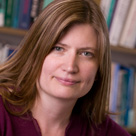
Despite having a reputation as the“land of the free,” the United States currently incarcerates about 2.4 million men, women and children. Snapshot statistics like this one, however, do not capture the churn in jails, prisons and detention centers; nearly 12 million people cycle through local jails every year alone. The 2.4 million number also does not take into account how many people’s lives are affected by our extensive system of punishment, including those on parole or probation; children of incarcerated parents; and communities that support prison systems. Furthermore, racial disparities in arrests, sentencing, and prison time call into question our guarantees of equal justice and fundamental fairness. This colloquium explores three critical questions about the American punishment system: Why is the prison population so high? What are the consequences of such a vast system of control? What reforms, if any, should we pursue? Associate Professor of Politics |
Tuesday, October 13th
| 10:30 a.m.-12:30 p.m. | "The Resettlement of Refugees in Oregon," Jenny Barischoff and Toc Soneoulay-Gillespie [Jinx Brandt], Ford 122
At the International Rescue Committee in Tucson, Arizona, Jenny developed and directed the Refugee Wellbeing Project that trained refugee women to provide in-home education to newly arriving families. She has held various positions at Catholic Charities and is currently coordinating refugee resettlement in Marion County. In addition, she and her husband founded Ariana House, a ministry that connects refugees and the Salem community and also provides a safe place for healing through the arts.
Ms. Soneoulay-Gillespie has substantial experience advocating for systemic change related to the needs of refugees and immigrants in both direct practice and program management capacities. Having served as an interpreter, consultant, and facilitator, she is passionate about the development and professionalism of the interpreting field. In partnership with the Alaska State Refugee Coordinator, she developed a training curriculum to address the disparity in equitable language access for underserved limited English proficient populations. For a number of years, she has trained providers and interpreters through this curriculum on how to work from a shared platform of expectations and best practices. She currently services as the Director of Refugee Resettlement at Catholic Charities. |
| 1:30 – 3:30 p.m. | "Oregon is Leading the Way on Climate-Change Policy," Angus Duncan [Kasia Quillinan], Ford 122
Oregon has committed to arresting the growth of greenhouse gas emissions in the near future, and then joining a global effort to reduce them to safe levels by 2050. But each day’s delay means steeper reductions when we get around to making them. The good news is that Oregon’s efforts are already showing results: we’re on target to meet our goals, but we need to step up our efforts to reach our 2020 and 2050 goals. Angus Duncan is the founding President of the Bonneville Environmental Foundation, which supports renewable energy development and watershed restoration in the Pacific Northwest. Mr. Duncan has worked in private sector renewable energy project development, in state and local government, as a Member and Chair of the Northwest Power Planning Council, and as Director of Energy Policy, US Department of Transportation. In 2004 Mr. Duncan chaired the Drafting Committee that wrote Oregon’s climate change goals and strategy, since adopted by the Governor and Legislature. In 2008, he was appointed by Governor Kulongoski as Chair of Oregon’s new Global Warming Commission; and in 2009, to the Governor’s Energy Policy Council. Mr. Duncan has consulted with NRDC since 2007 on utility energy and climate policies in the Pacific Northwest states; and with The Bullitt Foundation on transportation energy and greenhouse gas issues. |
Thursday, October 15th
| 10:30 - 11:30 a.m. | "An Introduction to Dr. Greenberg's Video Lecture," Rebecca Fromherz [Solveig Holmquist], Ford 122 Description TBA |
| 11:30 a.m.-12:30 p.m. | "How to Listen to and Understand Great Music, Video Lecture: 19th -Century Italian Opera --- Bel Canto Opera," Dr. Robert Greenberg [Solveig Holmquist], Ford 122
|
| 1:30 – 3:30 p.m.. | "Once Upon a Midnight Dreary: Alastair Jacques brings the works of Poe to life," Alastair Morley Jacques [Jyl McCormick], Ford 122
An Oregon native and former Bend resident, Jaques has been a professional and Shakespearean actor for more than a decade and an unrepentant bardolater (Shakespeare nut) since the age of five. In addition to his numerous theater credits, he is a frequent commercial voice-over talent and audio narrator. He studied theater arts and literature at the University of Oregon and The Evergreen State College. Jaques currently lives in Portland |
Tuesday, October 20th
| 10:30 a.m.-12:30 p.m. | "Transition to Modernism in Art," Deanne Beausoleil [Bob Muir], Ford 122
|
| 1:30 – 3:30 p.m. | "Great Decisions: Sectarianism in the Middle East," [Jeanette Flaming], Ford 122
Dr. Richard Francaviglia, WU professor of religious studies |
Thursday, October 22nd
| 10:30 a.m.-12:30 p.m. | "The Greatest War: Germany vs. USSR (1941-1945)," Bob Muir, Ford 122
|
| 1:30 – 3:30 p.m. | Title TBA, Presentation by the Willamette University International Students, Ford 122
Milena Otasevic (Belgrade, Serbia) received a B.A. in English Language and Literature at the University of Belgrade in 2009. Milena worked in the field of international education for over 5 years and main part of her job was what she calls being "a cultural translator" between U.S. and Serbian cultures. She has diverse volunteering experience in education and community-based programs on gender and minority issues (Roma minority and LGBT) in Serbia.
|
Tuesday, October 27th
| 10:30 a.m.-12:30 p.m. | "Native Women’s View of Lewis and Clark," Pat Courtney Gold [Karen Trucke], Ford 122
About the Artist: Pat Courtney Gold is a Native American fiber artist and basket weaver. She is a Wasco Native of the ancestral “Long Narrows Wasco” the upriver branch of the Chinook Nation. Her ancestors lived along the Columbia River for more than 12,000 years. She was born and raised on the Warm Springs Indian Reservation, Oregon. Pat obtained a B.A. in mathematics and physics from Whitman College and worked in the field until 1991 when she decided instead to focus on art especially reviving the weaving of her Wasco ancestors. Today Pat Courtney Gold is recognized internationally as an exquisite weaver who does both traditional weaving, that incorporate designs that express the cultural life of her people, as well as creating contemporary pieces. Besides doing artwork, she teaches, consults, and lectures about the Columbia River Native cultures to universities and museums. Her art is shown in museums and collections around the world. |
| 1:30 – 3:30 p.m. | "The Pacific War: How Surprising Victory Turned into Total Defeat," David Engen, Ford 122 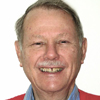 The attack on Pearl Harbor dragged the United States into war with Japan, Germany and Italy. The millions of square miles of the Pacific Ocean ensured that the primary military forces would be mostly naval in nature. The attack so crippled the American battleship fleet, that the aircraft carrier became the primary instrument for exerting power in the region. Japan had entered the war with an efficient and extraordinarily well prepared navy, but without the ability to match the industrial power of the United States. The Japanese hoped to give the U.S Navy such a severe defeat that the U.S. would be driven to ask for peace.They had a profound misunderstanding of the U.S., and the U.S. had a profound misunderstanding of the nature and quality of the Japanes armed forces. The attack on Pearl Harbor dragged the United States into war with Japan, Germany and Italy. The millions of square miles of the Pacific Ocean ensured that the primary military forces would be mostly naval in nature. The attack so crippled the American battleship fleet, that the aircraft carrier became the primary instrument for exerting power in the region. Japan had entered the war with an efficient and extraordinarily well prepared navy, but without the ability to match the industrial power of the United States. The Japanese hoped to give the U.S Navy such a severe defeat that the U.S. would be driven to ask for peace.They had a profound misunderstanding of the U.S., and the U.S. had a profound misunderstanding of the nature and quality of the Japanes armed forces. |
Thursday, October 29th
| 10:30 a.m.-12:30 p.m. | Title TBA, World War II presentation George Adkins, Ford 122
|
| 1:30 – 2:30 p.m. | "The Portrayal of Women in WWII-Era Broadway Musicals," Solveig Holmquist, Ford 122
|
| 2:30 – 3:30 p.m. | "Name That Tune in 4 Notes: Popular WWI-Era Songs," Jyl McCormick and Solveig Holmquist, Ford 122
All of us are the program presenters during this hour of singalong. Added incentive: Shout out the title as soon as you recognize it, and win a prize. 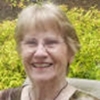 |


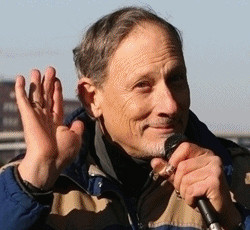 Most people old enough to remember the late 1980s, or before, recall that all social change movements used to have participatory music that was common to those who were active in that effort, as well as to others who were not active, but were supportive. Sometime around the early nineties, use of this tool diminished and – in many instances – vanished, at least in the U.S.
Most people old enough to remember the late 1980s, or before, recall that all social change movements used to have participatory music that was common to those who were active in that effort, as well as to others who were not active, but were supportive. Sometime around the early nineties, use of this tool diminished and – in many instances – vanished, at least in the U.S.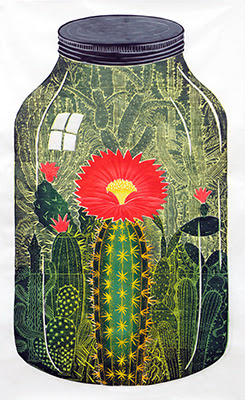 Stilleven: Contemporary Still
Stilleven: Contemporary Still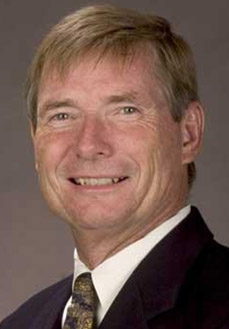 Terry Horne will talk on the newspaper industry and how it has changed and will continue to do so.
Terry Horne will talk on the newspaper industry and how it has changed and will continue to do so.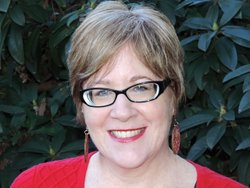
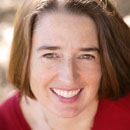 Who am I and where do I belong? These questions are foundational to our identity as individuals and to our formation of community. This colloquium explores the experiences of people of Asian heritage (broadly defined) who have called Oregon home and examines Asian influences on the land and culture of the state. We will closely examine the connections we make between place and identity by considering the Japanese American community in Hood River, OR; the Chinatowns of Portland, OR; and the Kam Wah Chung State Heritage Site in John Day, OR. We will engage a broad range of material, including memoirs (Big Little Man by Alex Tizon) and urban history (Sweet Cakes, Long Journey by Marie Rose Wong), but will focus in particular on first-hand sources and experiential learning, combining work in local archives with field trips to obtain a better sense of the ways in which Oregon reflects Asian heritage.
Who am I and where do I belong? These questions are foundational to our identity as individuals and to our formation of community. This colloquium explores the experiences of people of Asian heritage (broadly defined) who have called Oregon home and examines Asian influences on the land and culture of the state. We will closely examine the connections we make between place and identity by considering the Japanese American community in Hood River, OR; the Chinatowns of Portland, OR; and the Kam Wah Chung State Heritage Site in John Day, OR. We will engage a broad range of material, including memoirs (Big Little Man by Alex Tizon) and urban history (Sweet Cakes, Long Journey by Marie Rose Wong), but will focus in particular on first-hand sources and experiential learning, combining work in local archives with field trips to obtain a better sense of the ways in which Oregon reflects Asian heritage. Jenny Barischoff has worked with refugees for seven years and with Catholic Charities for the last three years. She holds a Master’s Degree in Public Health from UCLA and a Bachelor’s in Near Eastern and North African Studies from the University of Michigan.
Jenny Barischoff has worked with refugees for seven years and with Catholic Charities for the last three years. She holds a Master’s Degree in Public Health from UCLA and a Bachelor’s in Near Eastern and North African Studies from the University of Michigan.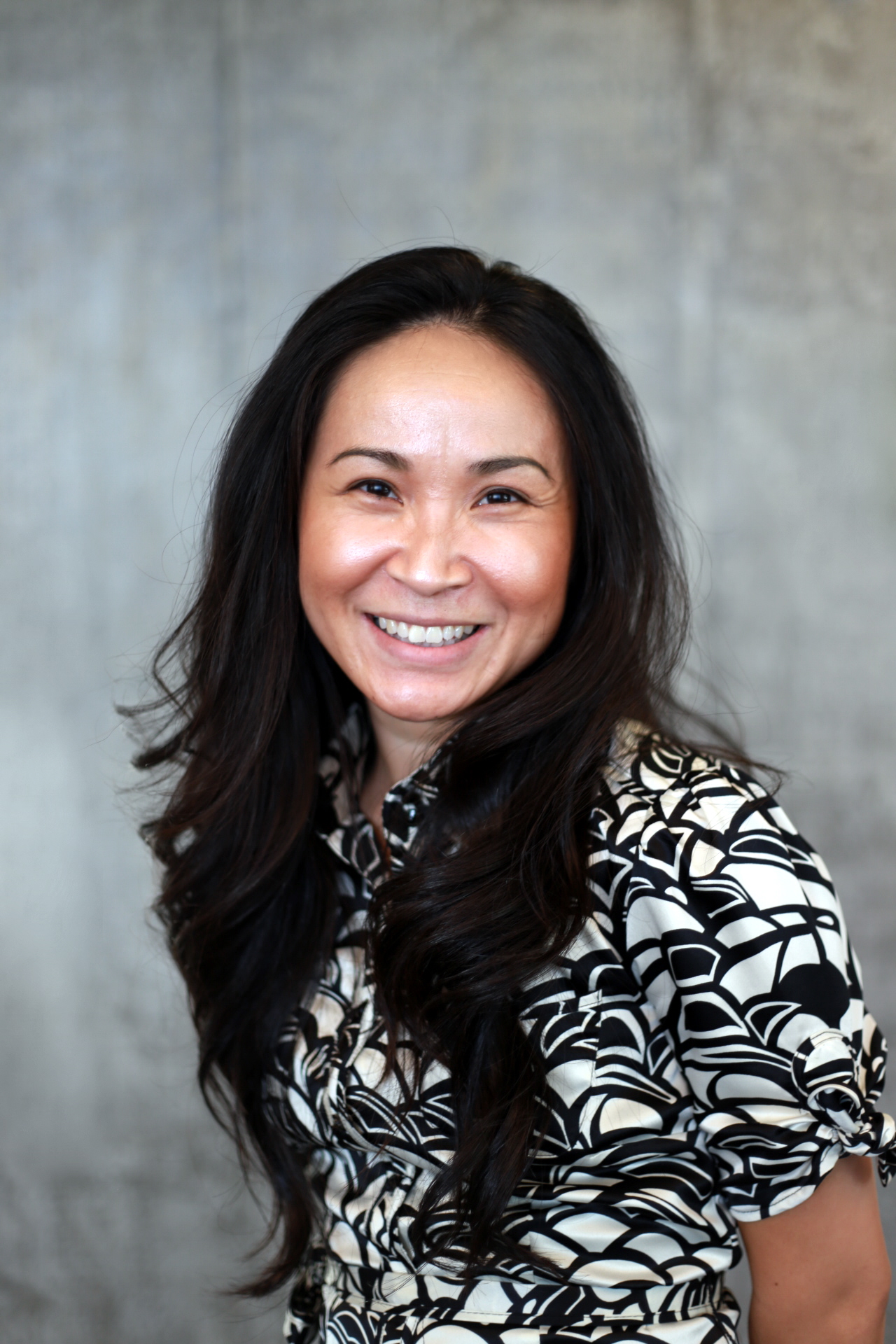 As a 1.5 generation refugee, Ms. Soneoulay-Gillespie brings a unique perspective for understanding the strengths and complexities of working with refugees and immigrants. She holds a Bachelors degree in Anthropology/Sociology from Eastern Oregon University and a Masters of Social Work from the University of Alaska Anchorage.
As a 1.5 generation refugee, Ms. Soneoulay-Gillespie brings a unique perspective for understanding the strengths and complexities of working with refugees and immigrants. She holds a Bachelors degree in Anthropology/Sociology from Eastern Oregon University and a Masters of Social Work from the University of Alaska Anchorage.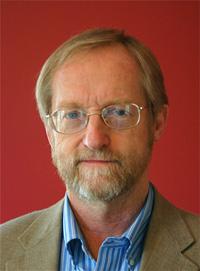 Oregon and the Pacific Northwest already lead the nation in reliance on renewable energy. To the hydroelectricity from our rivers we’re adding wind, solar, biomass, geothermal and ocean energy technologies. Energy efficiency has been a passion in Oregon since the energy crises of the 1970s. Our cities have become world showcases demonstrating how urban areas thrive when transit, bicycles and pedestrians share transportation duties with the automobile. We know how to do this. We're doing it: creating green jobs and businesses, improving livability, adding to local tax receipts, and developing new products and services to sell to those in the slow lane. We also care about the health of our streams and forests, and about the world we will leave to our children and grandchildren. We can contain greenhouse gas emissions, manage the impacts before they reach widely destructive levels,and create new opportunities for economic growth– but we must act now.
Oregon and the Pacific Northwest already lead the nation in reliance on renewable energy. To the hydroelectricity from our rivers we’re adding wind, solar, biomass, geothermal and ocean energy technologies. Energy efficiency has been a passion in Oregon since the energy crises of the 1970s. Our cities have become world showcases demonstrating how urban areas thrive when transit, bicycles and pedestrians share transportation duties with the automobile. We know how to do this. We're doing it: creating green jobs and businesses, improving livability, adding to local tax receipts, and developing new products and services to sell to those in the slow lane. We also care about the health of our streams and forests, and about the world we will leave to our children and grandchildren. We can contain greenhouse gas emissions, manage the impacts before they reach widely destructive levels,and create new opportunities for economic growth– but we must act now.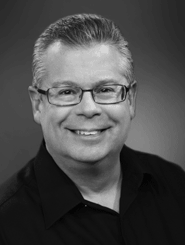 In contrast to French opera of the 19th century, which constituted a relatively isolated tradition, the Italian and German opera traditions were far more influential and internationally popular. Italian opera was a business venture and conservative in nature. Gioacchino Rossini, one of the great composers of Italian-language opera of the 19th century, was also a master of the bel canto style. This style emphasizes beauty of melody and voice and is exemplified by the aria "Una voce poco fa" from Rossini's "Barber of Seville", one of the greatest opere buffe ever written.
In contrast to French opera of the 19th century, which constituted a relatively isolated tradition, the Italian and German opera traditions were far more influential and internationally popular. Italian opera was a business venture and conservative in nature. Gioacchino Rossini, one of the great composers of Italian-language opera of the 19th century, was also a master of the bel canto style. This style emphasizes beauty of melody and voice and is exemplified by the aria "Una voce poco fa" from Rossini's "Barber of Seville", one of the greatest opere buffe ever written.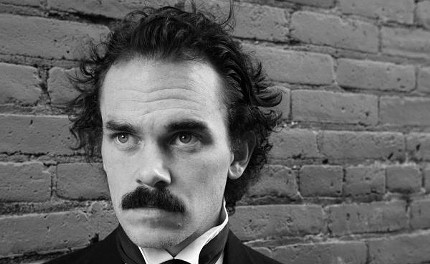 People think of Poe as a pale, lurking man with a moustache who wrote a poem about a scary bird that they read in high school. My audience's expectation is to be entertained in a seasonally appropriate fashion. With this in mind, I play up the creepy elements in Poe's stories and poems. Of course I always close with "The Raven".
People think of Poe as a pale, lurking man with a moustache who wrote a poem about a scary bird that they read in high school. My audience's expectation is to be entertained in a seasonally appropriate fashion. With this in mind, I play up the creepy elements in Poe's stories and poems. Of course I always close with "The Raven".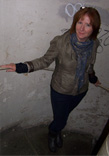 I graduated from Savannah College of Art and Design in 2000 with a MA in art history. I have been teaching Introduction to Art History and Understanding Art at Chemeketa Community College for more than ten years.In addition to teaching, I research and write about subjects in the field of art history. I have been the co-collaborator, with fellow Chemeketa faculty Jane Lieber Mays, on a visual and literary project that studies the lives and work of women artists. The project is called Our Foremothers. Currently, I am continuing research in the era of Dutch Baroque art. Through these projects I am involved in ongoing art history research that helps me develop new ideas and perspectives about what I teach and study.
I graduated from Savannah College of Art and Design in 2000 with a MA in art history. I have been teaching Introduction to Art History and Understanding Art at Chemeketa Community College for more than ten years.In addition to teaching, I research and write about subjects in the field of art history. I have been the co-collaborator, with fellow Chemeketa faculty Jane Lieber Mays, on a visual and literary project that studies the lives and work of women artists. The project is called Our Foremothers. Currently, I am continuing research in the era of Dutch Baroque art. Through these projects I am involved in ongoing art history research that helps me develop new ideas and perspectives about what I teach and study.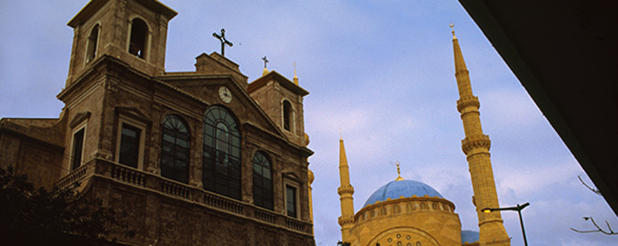 Many of the current conflicts in the Middle East have been attributed to sectarianism, a politicization of ethnic and religious identity. From the crisis in Iraq and Syria to the tension between Iran and Saudi Arabia, the struggle between Sunni and Shi'i groups for dominance is tearing apart the region and shows no signs of abating. But for all the religious discourse permeating the conflict, much of its roots are political, not religious. How does sectarianism fit into a larger narrative of the Middle East? How have governments manipulated sectarian differences? And finally, what is, can or should the U.S.be doing about it?
Many of the current conflicts in the Middle East have been attributed to sectarianism, a politicization of ethnic and religious identity. From the crisis in Iraq and Syria to the tension between Iran and Saudi Arabia, the struggle between Sunni and Shi'i groups for dominance is tearing apart the region and shows no signs of abating. But for all the religious discourse permeating the conflict, much of its roots are political, not religious. How does sectarianism fit into a larger narrative of the Middle East? How have governments manipulated sectarian differences? And finally, what is, can or should the U.S.be doing about it?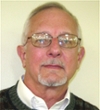 The first hour will cover the battle history of the German-Soviet war from the invasion of Poland to the fall of Berlin. When, where and how did the tide of the war turn in favor of the USSR and against Germany? How did the the Germany-USSR war help the western Allies and how did campaigns of the Western allies help the USSR in their respective wars with Germany? How did the lack of Soviet conflict with Japan and of U.S. Lend-Lease help in the USSR's fight against Germany?
The first hour will cover the battle history of the German-Soviet war from the invasion of Poland to the fall of Berlin. When, where and how did the tide of the war turn in favor of the USSR and against Germany? How did the the Germany-USSR war help the western Allies and how did campaigns of the Western allies help the USSR in their respective wars with Germany? How did the lack of Soviet conflict with Japan and of U.S. Lend-Lease help in the USSR's fight against Germany?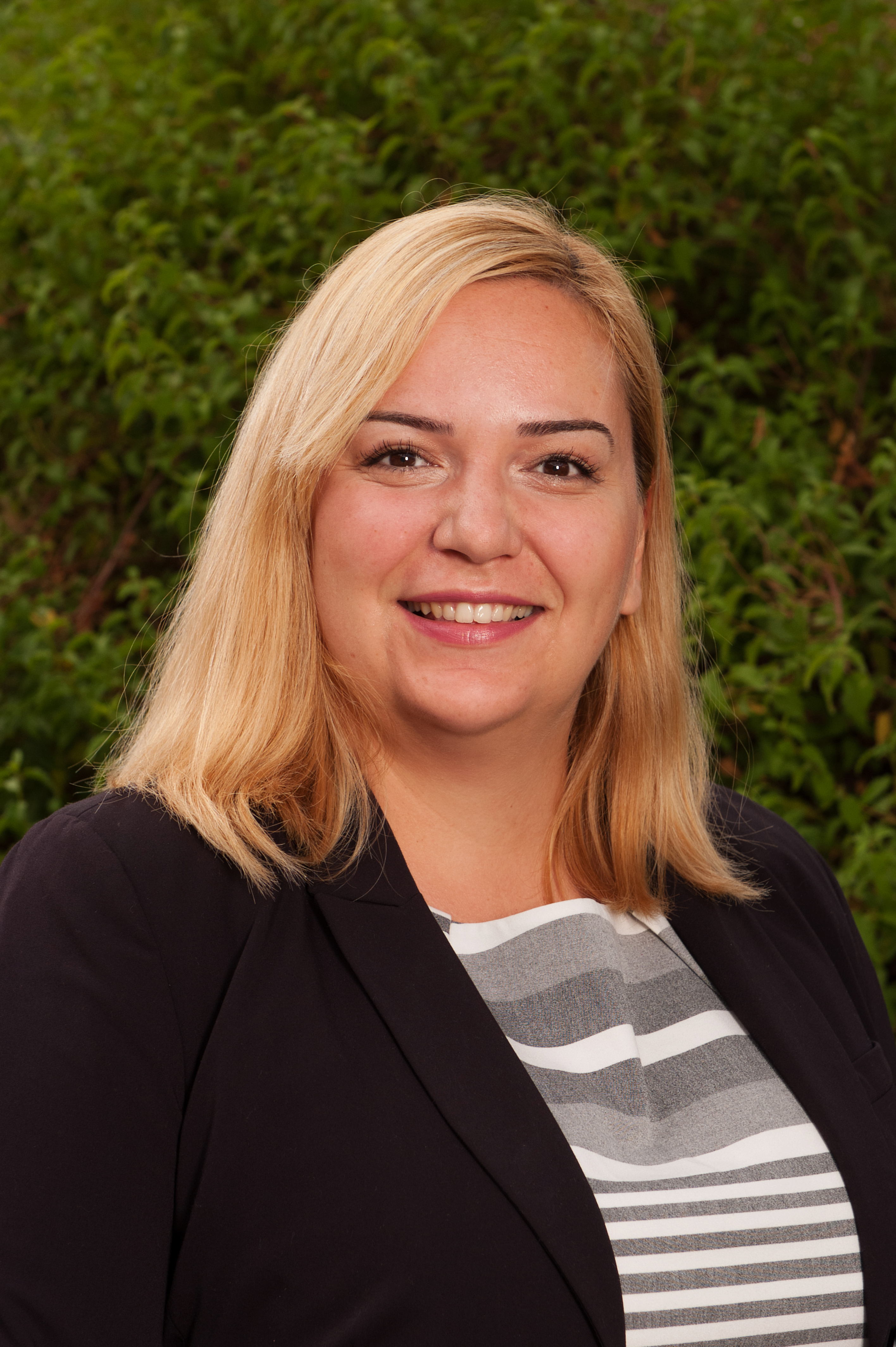
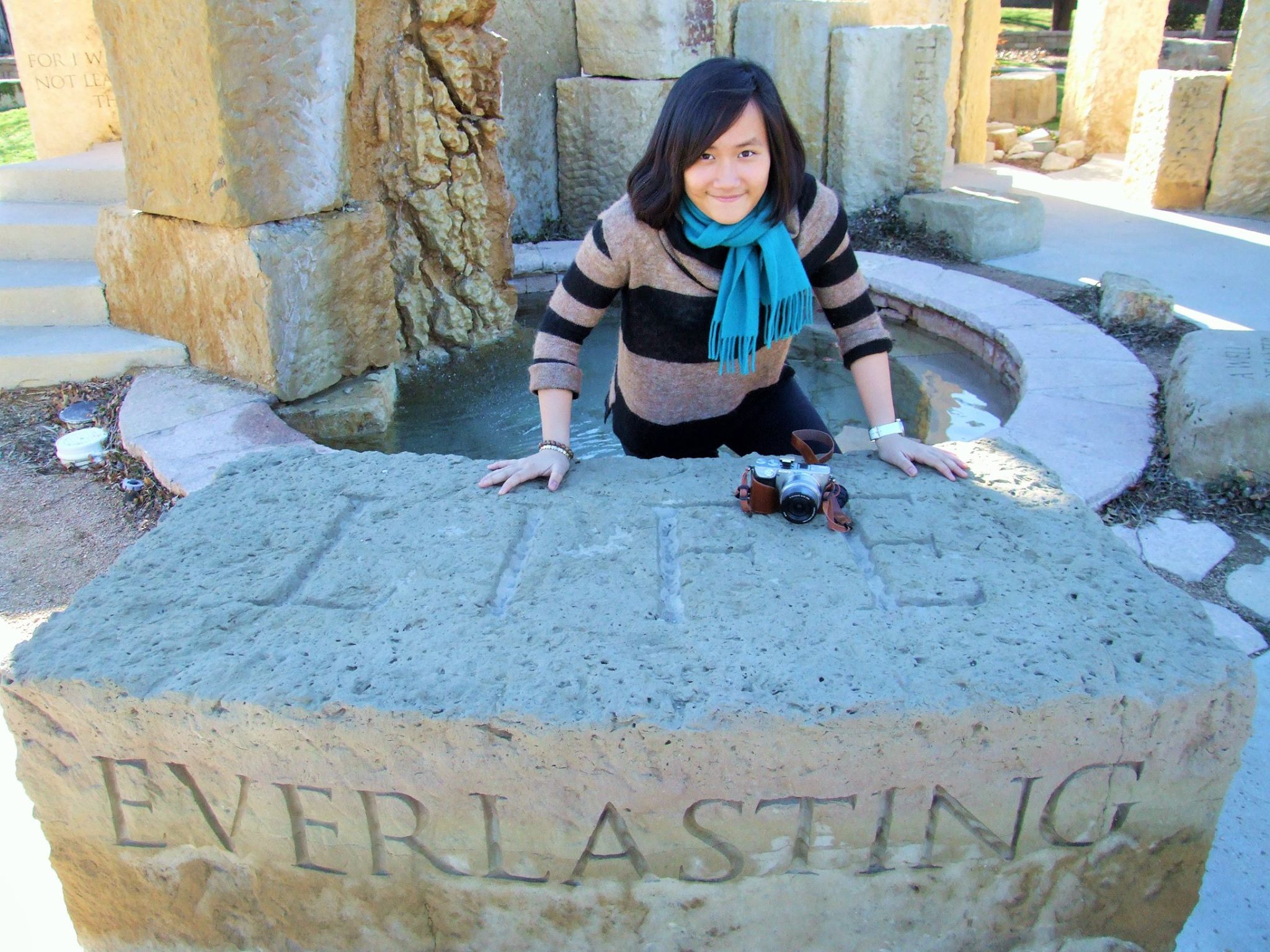 Duong Mai is an undeclared sophomore from Vietnam. She is interested in international studies and anthropology. She speaks Vietnamese and English. She also studies French at WU. Duong chose WU because it was a small, liberal arts college with a high reputation. She enjoys meeting new people and learning about culture. In her spare time she enjoys going to a coffee shop to read books and hang out with friends. Her goal is to travel around the world and experience life after college
Duong Mai is an undeclared sophomore from Vietnam. She is interested in international studies and anthropology. She speaks Vietnamese and English. She also studies French at WU. Duong chose WU because it was a small, liberal arts college with a high reputation. She enjoys meeting new people and learning about culture. In her spare time she enjoys going to a coffee shop to read books and hang out with friends. Her goal is to travel around the world and experience life after college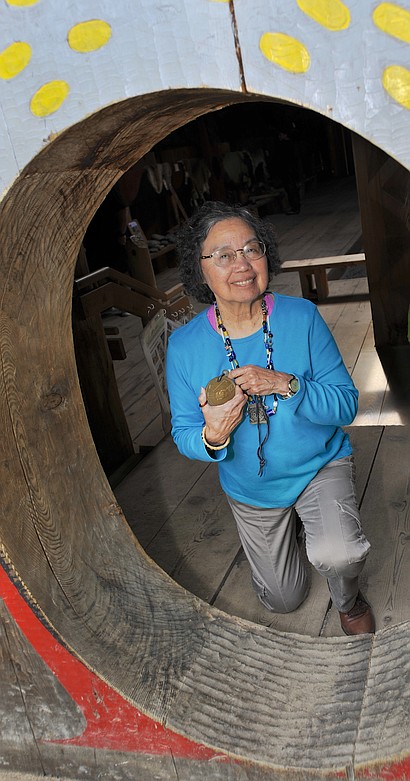 All the books written about Lewis and Clark were from a white man’s perspective. Learn about the Native People’s view of Lewis and Clark. How did the Columbia River matriarchal society see Lewis and Clark? What did they think of the smelly bearded men who ignored the sacred salmon in preference for dog meat?
All the books written about Lewis and Clark were from a white man’s perspective. Learn about the Native People’s view of Lewis and Clark. How did the Columbia River matriarchal society see Lewis and Clark? What did they think of the smelly bearded men who ignored the sacred salmon in preference for dog meat?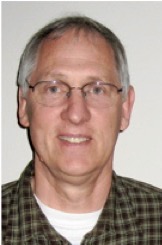 Oregon’s largest ghost town was once Oregon’s second largest city. For a short time in the 1940’s, over 40,000 people resided at Camp Adair, located just north of Corvallis Oregon. Four U.S. Army Divisions were trained there and saw action in both the European and Pacific theaters. This presentation will attempt to bring WWII a little closer to home, both geographically and emotionally, through the use of personal accounts and letters. We will follow the 70th Infantry Division through training at Camp Adair, arrival in Europe, and immediate engagement with the German Army in France and Germany beginning in January 1945. The sacrifices and contributions of these men were exceptional as well as typical, as they joined millions of others to end the Nazi scourge and bring World War II to a close.
Oregon’s largest ghost town was once Oregon’s second largest city. For a short time in the 1940’s, over 40,000 people resided at Camp Adair, located just north of Corvallis Oregon. Four U.S. Army Divisions were trained there and saw action in both the European and Pacific theaters. This presentation will attempt to bring WWII a little closer to home, both geographically and emotionally, through the use of personal accounts and letters. We will follow the 70th Infantry Division through training at Camp Adair, arrival in Europe, and immediate engagement with the German Army in France and Germany beginning in January 1945. The sacrifices and contributions of these men were exceptional as well as typical, as they joined millions of others to end the Nazi scourge and bring World War II to a close.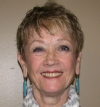 Description TBA
Description TBA